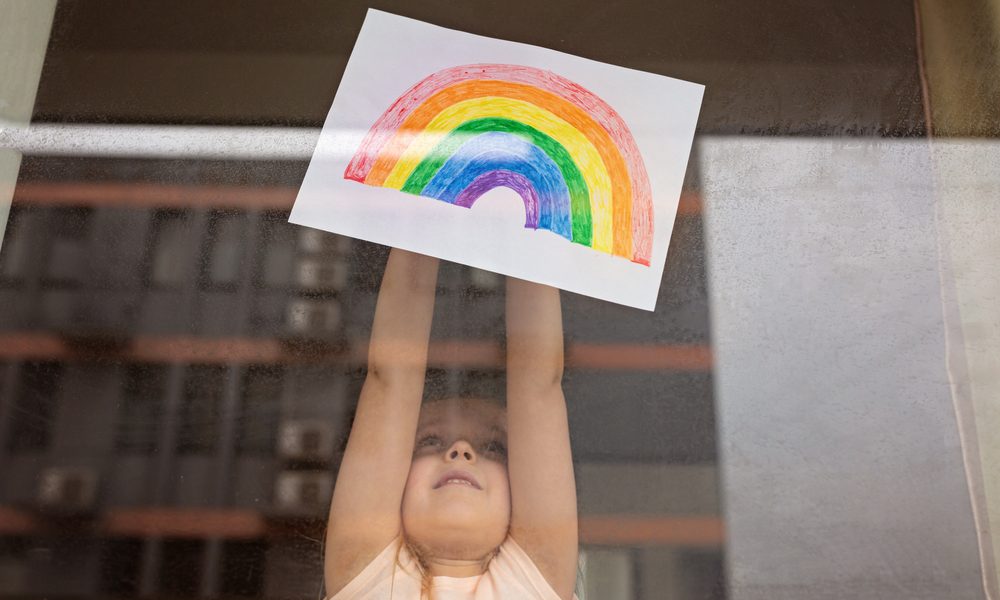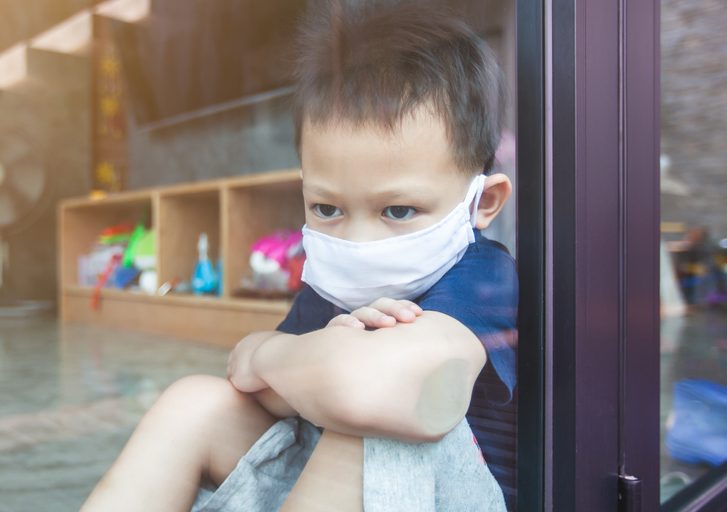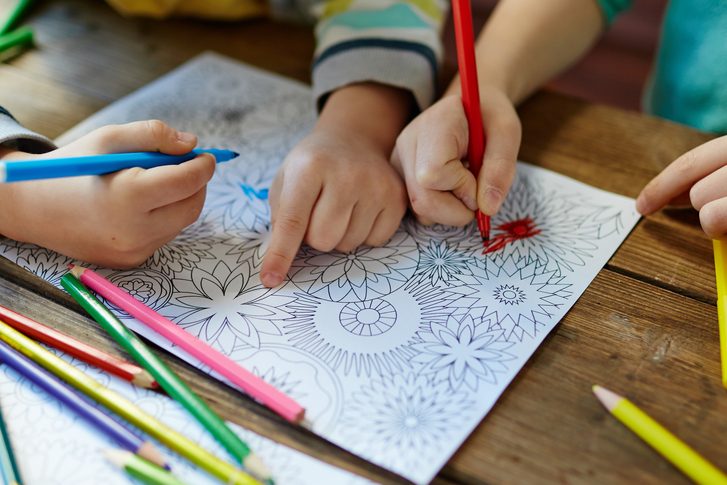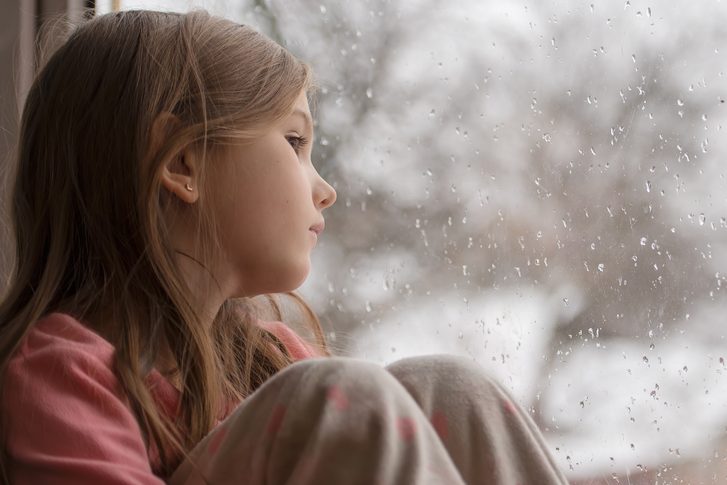
Parenting in the Time of the Pandemic: A School Psychologist’s Tips on Adjusting to the New Norm with Your Kids

Raising kids is already a tough enough job, more so in the time of the COVID-19 pandemic. Not only are you thinking about your kids’ welfare, but you are also struggling to thrive in an uncertain and unstable reality. At this time, the new normal for your child involves extended school closures and no in-person playdates, while you may be adjusting to a work-from-home set-up or have recently lost your job. Add in worrying about your child’s psychological well-being, stress levels tend to shoot through the roof.
The University of Michigan recently conducted a study during the early stages of the pandemic. It revealed that conflicts between a parent and their kid have been more frequent while the stay-at-home orders are in place. It was found out that there have been more incidents of yelling and the use of harsh language. Around 15% of the parents also said that they are now using discipline more.
School psychologist Dr. Erin Harper of the Texas A&M University-Commerce shares some tips on how parents can support their children’s emotional and mental health that she also applies to her 4-year-old son. Navigate through the new norm and learn as you go in the time of the pandemic.

A3pfamily/Shutterstock
Amid stay-at home orders, conflicts between a parent and their child are more common.
What Your Kids May Be Feeling at this Time
Like adults, younger kids and teenagers are also experiencing a variety of feelings while on quarantine. Adults tend to get anxious and worried about the situation that we’re in. It’s important to note that whatever reactions or emotions you may be showing to your kids may influence their own feelings.
So, try your best to apply coping mechanisms so you can manage your emotions better. You can do this by connecting with your support system, may it be your family or your friends. You can also insert some physical or mindfulness activities into your routine and get enough sleep. When you interact with your children, you can listen to them carefully, provide thoughtful responses, and give them a sense of calm.
How to Talk to Your Kids About What’s Happening
Your approach may vary depending on the age of your child. Preschoolers usually have a limited understanding of complex situations like this. However, they can still recognize and express concern if there are any changes in their routine.
What you can do is to explain to them what’s happening. Even though they may not fully understand it, you still have to make an effort to explain why. Tell them that you can still talk to your friends or family through a video chat. Distraction usually works well at this age.
For elementary school kids, explain it using a simple language. Balance the facts with reassurances that the adults are trying their best to help them. Middle schoolers, meanwhile, can be more vocal about their confusion and their quest to know answers. Make sure to differentiate what’s real and what’s not.
Junior high and high school students can better comprehend the situation. To give then a sense of control even in one aspect of their life, tell them the truth, give up-to-date facts, and direct them to credible sources.

Pressmaster/Shutterstock
Different age groups require different approaches.
Best Way to Support Your Children Emotionally Right Now
You both need flexibility during this time, but a bit of structure can also help promote a sense of calm. A structure can mean daily schedules. If you find it stressful to follow the schedule to a T, reevaluate it and adjust.
Try to make one that is similar to your kid’s schedules on weekdays. It may give them a sense of normalcy. Also, try to change up your weekends so you can differentiate it.
How Do You Know if Your Child is Scared or Having a Hard Time Understanding the Situation?
Different age groups may have different reactions. The key is to notice unusual behavior. Preschoolers who are under stress can show regressive behavior like being overly clingy or more tantrums. Their eating and sleeping habits may also change.
Elementary students also have similar habits, but it’s more on changes in their mood. They might also be more irritable, sad, and turbulent at times. They may also find it difficult to concentrate.
Adolescents also have similar effects, but they are joined with acting out and physical health complaints.

Yulyazolotko/Shutterstock
Watch out for cues like increased irritability, sadness, and clinginess.
Resources for Overwhelmed Parents
You can look for and join virtual support groups on Facebook. There, you may meet moms who have the same dilemmas and exchange tips. Try to stay connected with the schools of your children or use online learning platforms like PBS Learning Media.
More in Mind & Mental
-
`
How to Tell if a Bipolar Man Loves You – Key Signs and Indicators
Relationships, especially those involving someone with bipolar disorder, can be challenging but rewarding. The highs and lows characteristic of bipolar...
August 15, 2024 -
`
How to Prepare for All You Can Eat Sushi Buffets – Tips & Tricks
Are you ready to enjoy a sushi buffet and make the most out of your dining experience? If you’re a sushi...
August 9, 2024 -
`
How Does the Brain Play Into Mindset? The Power of the Mindset
How does the brain play into mindset? Within the brain lies the foundation of our mindset, shaping our perceptions and guiding...
August 3, 2024 -
`
How Often Should You Meditate to Achieve Your Goals
How often should you meditate to achieve its benefits? This question is often asked by those looking to incorporate this practice...
July 25, 2024 -
`
How to Be a Better Wife? 10 Essential Tips
Marriage is a beautiful journey, a tapestry woven with moments of joy, tenderness, and perhaps even a few snags along the...
July 19, 2024 -
`
The Best Quotes About Shadow Self You Need to Read
The journey of self-discovery is incomplete without acknowledging the parts of ourselves that lurk in the dark—the shadow self. “Owning Your...
July 12, 2024 -
`
How to Make Your Wife Happy and Strengthen Your Bond
You’ve probably heard the age-old advice, “Happy wife, happy life.” But what does it really mean to make your wife happy?...
July 5, 2024 -
`
Top 6 Best Beaches in Lake Tahoe You Should Not Miss
Lake Tahoe is a gem nestled in the Sierra Nevada mountains, boasting some of the most breathtaking beaches you will ever...
June 28, 2024 -
`
6 Practical Ways of Using Social Media Less & Be More Productive
In today’s digital age, knowing how to spend less time on social media is a game-changer. Social media, though engaging, can...
June 20, 2024















You must be logged in to post a comment Login